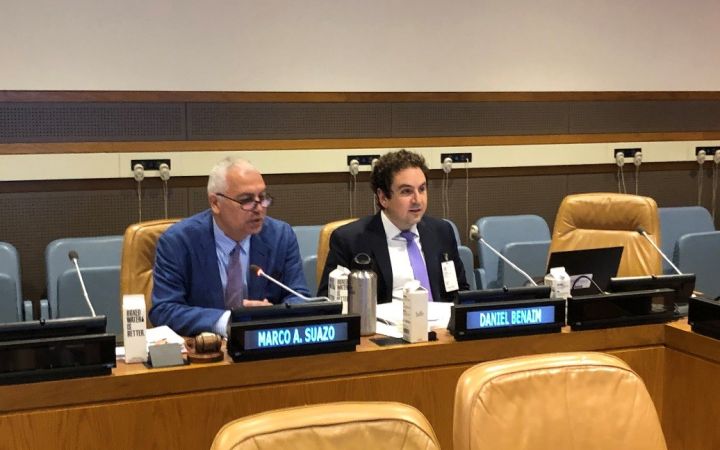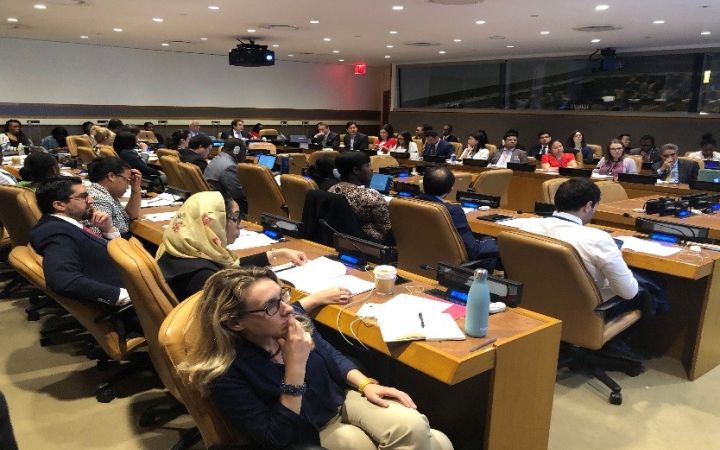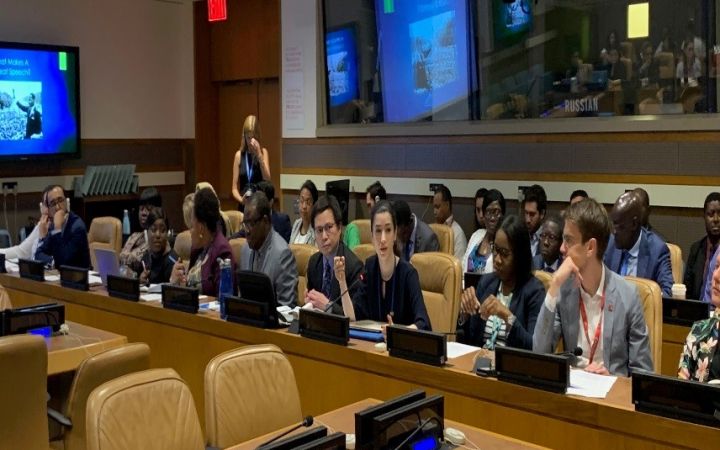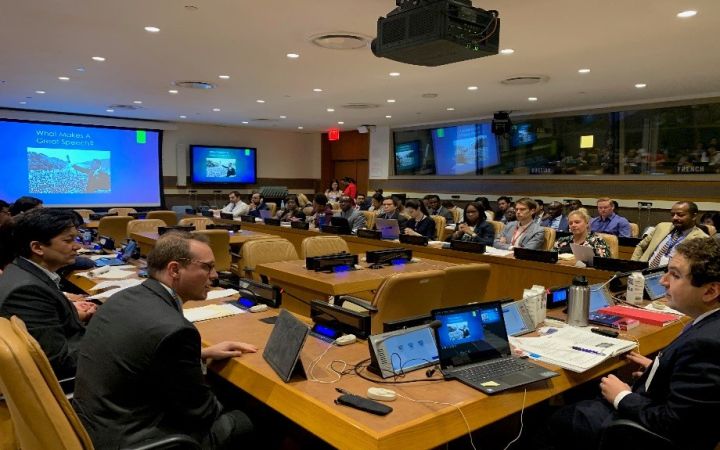27 June 2019, New York, USA - The United Nations Institute for Training and Research (UNITAR NYO) hosted a full-day Speech Writing Seminar with Professor Daniel Benaim. Daniel Benaim is a senior fellow at American Progress, researching U.S. policy in the Middle East, as well as a visiting lecturer at New York University. Previously, he served as a Middle East policy adviser to former Vice President Joe Biden and foreign policy speechwriter at the White House, the Department of State, and the U.S. Senate. This course aimed to help diplomats to create compelling material, develop a reliable process, find a speechwriting voice, craft excellent speeches – and become a more informed consumer of diplomatic rhetoric in the process. This course is sponsored by the Government of Sweden under the programme “Leveling the Playing Field”.
The seminar was opened by Mr. Marco Suazo, head of UNITAR office in New York. In his remarks, Mr. Suazo expressed the importance of researching and drafting speeches, in all diplomatic levels, especially at the United Nations. Mr. Suazo thanked Professor Benaim for collaborating with UNITAR during this diplomatic training session and for providing his expertise on foreign policy speechwriting to low, mid, and high-level officials and delegates at the United Nations. Ambassador Suazo and Professor Benaim overviewed the course and welcomed everyone to participate and provide comments throughout the seminar.
Mr. Benaim began the first session with lessons from Aristotle’s modes of persuasion, George Orwell’s writings and Joe Biden’s methodology on what makes a good speech. He explained how Aristotle’s three modes of persuasion; ethos, pathos and logos, are fundamental for drafting and delivering a speech. Ethos depends on the personal character of the speaker; pathos on putting the audience into a certain frame of mind; and logos on the proof, provided by the words of the speech itself.
He then described the methods of structure, rhetoric and research and introduced the Monroe Motivated Sequence structure for a persuasive speech in five steps. Mr. Benaim shared some of his own experiences with the participants and emphasized how important it is for a speechwriter or any person writing a speech to be organized with a specific structure, always depending on the topic of the speech.
In the afternoon session, Mr. Benaim presented many videos on the do’s and don’ts of inserting jokes within a speech and engaged in an interactive discussion with the participants on how to find and tell memorable stories to make a speech more impactful for the audience. Lastly, Mr. Benaim spoke briefly about op-eds, ceremonial speeches and ethics and how delegates can turn speeches into op-eds.The seminar was attended by 90 diplomats and was very interactive, while participants took the opportunity and engaged with Professor Benaim by asking questions on his foreign policy and speech writing expertise. The closing remarks were made by Mr. Suazo, and he thanked the participants for attending. He also congratulated Mr. Benaim for his excellent delivery of the seminar and asked him to return in the future for another workshop at the United Nations. Diplomats also encouraged the continuation of this workshop.





